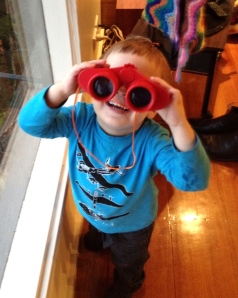There are things I would say if I had a voice.
I don’t, you see – have a voice. Not an individual voice that is mine and that matters and can be heard over the din. Because it is put down, or written off, or labelled in a way that makes it worth less. Not worthless maybe, just worth less. I am told I am a mummy blogger, and maybe I am – but I am also not a writer, I am a woman writer. A woman who writes, predicated on gender; an aside, behind the hand, good at what I do for a woman. ;
There are moments in every woman’s life when she is both confronted by her womanhood and reviled by it – when it beats on her like a hammer, a mantra, a reminder of all that she is, all that she is not, all that is expected of her and all that is not allowed of her. To be a woman is to be mired in contradictory social conditioning that both contains us and undermines us.
(I am 13, walking to a fete on a hot day in a singlet and shorts, and some hoon drives past slowly, leaning out the window, making a lewd gesture. I bloomed late – I have no breasts, no curves, no signs of womanhood other than I am taller than I used to be. This is a rite of passage all young women face – this moment, of being unsure if this is a compliment or an insult, or somehow both. Feeling raw and slick with disgust and heat and shame and yet somehow pleased too, because only attractive girls get leered at, right? Right?)
I am a mother now, and this is an extra caveat to womanhood, an extra characteristic that defines me as Other. I am a mother with that this pertains – the guilt, the boredom, the terror and fleeting moments of joy; joy so sharp and poignant it is more like a bandaid being torn off than any permanent emotion. Like a quick rip through the heart that leaves you blinking back tears, because this joy feels almost like grief too – I get this, yes I get this joy but the compromise is so great. There is so much I lose. The cost is so high. Motherhood is another way of losing one’s voice, after all.
I had no voice today in the shopping centre – the mother rocking a wretchedly sobbing infant in her arms – while in the pram, a toddler mimics the wails of the infant. An old man walked past, staring at me like I’d ruined his day, like I’d brought my children into his space and deliberately upset them, so the shrieks echoed through the vaulted mall in a way that is perfectly toned to make your ears itch. If I spoke then, my voice would have been lost in this old man’s judgement. Mothers are not supposed to inflict their children on public spaces, THEMSELVES on public spaces. Do not be a mother in a shopping centre doing her shopping for dinner, trying to get out of the house for an hour, to make the scenery change for a moment of a day otherwise filled with childish chatter. Do not be a mother whose children are not perfectly silent and still mannequin models of good behaviour. Do not be a mother who is trying her best, getting through the day, trying to cope. Do not be a mother, because mothers have no voice.
Mothers are in the home, most often, because it makes sense after a traumatic or exhausting birth, or a c-section, to be the one to stay home. It makes sense, being the one who breastfeeds, or even bottle feeds; it makes sense when doing the night wakings. It makes sense for me to stay home now with the second baby because I stayed home with the first one, and after several years of a slow domestic tilt where everything slides in my direction, it makes sense that it is my studies that stop, my career that grinds to a halt, my earning opportunities that pass by unnoticed because I am a mother, and this is what mothers do. I stay home and contemplate the scars on my body, the medicalisation of my genitalia, the baby on my breast. I stay home because it is easier, and anyway mothers who don’t stay home are judged too. ;
If I talk too loudly about my needs and wants, if I try to speak up about equality – for any woman who speaks up about equality – there are other ways of being silenced. There is the label of ‘feminist’ – not the meaning, just the word – the label that some say needs ‘re-branding’, as though it is an item for sale rather than a thought or a need. There’s the ubiquitous, ‘but I’m not a feminist’, as though it’s a club you sign up for a membership for rather than a way you live your life, a definition of your core beliefs. So this word, feminism-in-quote-marks, it comes to represent all of these things that it does not actually mean, it becomes an insult and a pejorative explanation, a political ideal and a movement that is picked over by those against is so they can say, ‘feminism has failed’, like it were a child, when really this is just another way of shutting us up. By saying ‘feminist’ as though we don’t matter. ‘Feminist’ as though our words have no import – after all, it is only a feminist who is speaking.
(It is 2009. I am in a relationship with a man, watching the slow wince form on his face when I speak too long and too loud on the gender pay gap, on domestic violence statistics, on cases of sexual assault. I am in a relationship with this man who professes to love me but at the same time, would prefer it if I didn’t talk about the things that matter to me, the life I live and the fear I face simply by being a woman. I am in a relationship with a man who wants to play ‘devil’s advocate’ and try and tear holes in the things I say or deny my experiences because he can. And one day I wake up and realise I don’t love him, I don’t want to be with him, I shouldn’t waste anymore of my time on him because someone who would rather I be silent is not someone I can trust. I end it, but he won’t ever understand.)
There are things I would say if I had a voice, but I don’t by virtue of being a woman. By virtue of being a mother, a feminist. I am categorised and allotted a certain space in this world, slightly over and above those who do not have the privileges that I have (the right skin colour, the right gender identity, the right sexuality, the right socioeconomic background, the right abled body, et cetera, et cetera), and I, like most women, am told I will be assigned someone to speak on my behalf, to choose my reproductive rights, my pay grade, my career opportunities – and when I look up to see whose voice will actually be heard, it is usually a man.
As it has always been men, a whole establishment of them. Calling us ‘feminazis’ with a sneer. Legislating our bodies. Marking us down on a list, splitting us into little categories, some with more privilege than others, deciding our rights and where we fit, writing us off as good at what we do ;for a woman. ;
Telling us where we fit. Mummy blogger. Woman writer. Just a stay at home mum. Just a woman. ;
Which might as well be nothing at all.
;

;



